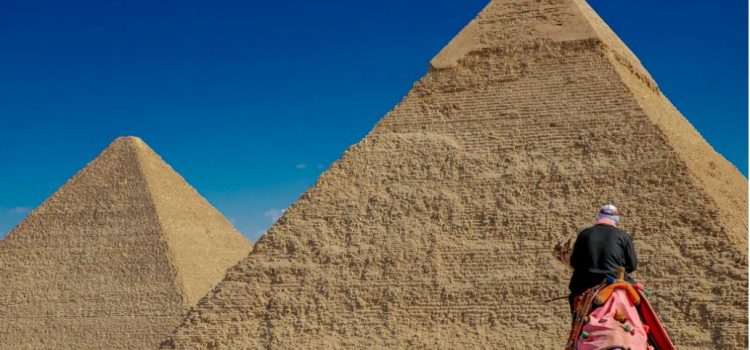

This article is an excerpt from the Shortform book guide to "The Alchemist" by Paulo Coelho. Shortform has the world's best summaries and analyses of books you should be reading.
Like this article? Sign up for a free trial here .
What is a Personal Legend in The Alchemist? Why do people tend to abandon their Personal Legends in life?
In Paulo Coelho’s book The Alchemist, the main character, Santiago, embarks on a life-changing journey to follow his dreams. Following your dream, or your Personal Legend, is the core message of the book.
Let’s take a look at following your Personal Legend, and what can happen if you ignore it.
Follow Your Calling
An old man in a plaza, who turns out to be a king named Melchizedek, strikes up a conversation with Santiago, and through this conversation, Coelho teaches us about the importance of following the signs that will guide you to your destiny.
The major insight Coelho reveals through the king is that everyone has what he calls a Personal Legend. In The Alchemist, this is essentially your calling in life, which you feel as a passion drawing you toward it. It’s that thing you most dream of doing in your life. People feel this pull most strongly in childhood, the king explains, as children are more in tune with the spiritual realm and are not afraid to dream big. However, he says this pull subsides as we grow older and become conditioned to live according to societal expectations. Eventually, many reject their calling entirely, believing it to be unachievable and unrealistic. However, the king explains that everyone’s dream is realizable at any time, and when you pursue it, the universe will work with you to help you achieve it. Pursuing this calling is our only real purpose in life, though most people will never accomplish that.
(Shortform note: The law of attraction tells us that our energy will attract like energy from the universe. In this way, according to The Secret, we can make the universe work with us to achieve whatever we want, by consciously generating the right energy. According to this philosophy we’re all connected as one “great mind,” and it’s through this that we’re able to create our own destiny, essentially by believing in it.)
Over the course of this conversation, the boy is convinced that he needs to follow his calling and go to the Egyptian pyramids to find his treasure. The king advises him that a crucial part of following one’s calling is paying attention to signs.
The boy decides that day to sell all his sheep to buy passage to Africa. In this decision, Coelho is showing us that sometimes we have to make major sacrifices to follow our dreams, and we will come to learn that it’s always worth the risk.
(Shortform note: In Who Will Cry When You Die? Robin Sharma argues that living fully necessarily involves taking risks and that becoming a risk-taker may require changing the way you think. The most important shift you’ll need to make is believing you can succeed; otherwise your self-doubt and fear will cause you to either not go forward with taking the risk, or to fail.)
The Crystal Merchant
Through the next important encounter in the story, Coelho shows us what can happen when we encounter obstacles on our path, and what becomes of those who don’t follow their life’s calling.
When Santiago arrives in Africa, before setting out toward Egypt, he’s robbed of all his money. This is the first major obstacle along his way. He becomes discouraged and begins to doubt everything he’s believed in. But he realizes that he needs to earn money to either continue on his journey, or return home, so he acquires a job in the shop of a crystal merchant, where he ends up working for a year.
During that time, Santiago has many conversations with the merchant, some of them about following his calling. The merchant tells the boy that he’s always dreamed of going on pilgrimage to the holy city of Mecca; it’s his calling in life. However, when Santiago asks why he doesn’t go, the merchant admits that he prefers that it stay a dream. He feels that if he actually achieves it, he’ll have nothing left to dream of, and therefore nothing to live for.
| The Arrival Fallacy In Happier, positive psychologist Tal Ben-Shahar describes what he calls the “arrival fallacy.” This is a psychological phenomenon in which a person feels a sense of disappointment after accomplishing a life goal. Shahar argues that this happens because we become too focused on the end goal and neglect to enjoy the process along the way toward it. So, when we reach that goal, we end up wondering “now what?” Living always in a future-oriented mindset may prevent one from living fully in the present, so once one goal is accomplished, you’ll continuously just need another goal to replace it. Considering this, the crystal merchant in The Alchemist may not have been too far off the mark when he believed going to Mecca might actually not bring him the fulfillment he imagined. |
In the character of the merchant, Coelho shows us a sad portrait of one who doesn’t have the courage to follow his dreams. We see in this portion of the story how many people don’t pursue their calling due to fear of failure and to being conditioned by society to stay in their comfort zone and not take risks.
(Shortform note: In The 10X Rule, Grant Cardone advises that you use your fear of taking risks to your advantage. He says that if you’re afraid, think of it as a positive thing because that means you’re nearing the edge of your comfort zone. In order to experience growth, we need to move beyond that edge. He says when you fear taking a risk, you should act on it as quickly as possible, because fear will increase over time. Hesitating too long will usually result in your backing out. He says the only thing that conquers fear is taking action.)
After a full year, Santiago saves enough money to either return to Andalusia and buy a new herd of sheep, or to continue to Egypt. He initially decides to go home. He longs for the comfort of what he knows and the simplicity of the shepherd’s life, and he’s become resigned like the merchant. But just as he’s on his way to make travel plans for home, he remembers the words of the king, telling him that when you pursue your calling the universe will work with you to make it happen. He realizes he’s making his decisions based on fear and seeking comfort over taking risks, and he decides to book passage on a caravan across the desert to Egypt.
With this decision, Coelho shows us that when we face obstacles and find ourselves at a crossroads, we need to remember that the universe will help us if we choose to take risks. But, we also see that it often takes hard work and dedication. Coelho makes it clear that Santiago had to put substantial effort into overcoming those obstacles—it wasn’t all magically handed to him.
(Shortform note: The 10X Rule also emphasizes the importance of hard work and dedication for overcoming obstacles toward a goal. On this topic, Cardone advises that when we’re having difficulty reaching a goal, instead of lowering the bar for the goal to be more “realistic” we should ramp up our effort. Do 10 times more than you were doing. He says the problem is never that you set your goals too high. Most people have the opposite problem—they don’t set their goals high enough.)

———End of Preview———
Like what you just read? Read the rest of the world's best book summary and analysis of Paulo Coelho's "The Alchemist" at Shortform .
Here's what you'll find in our full The Alchemist summary :
- A guide to the infamous story by Paulo Coelho
- A breakdown of the symbolism and lessons found in the story
- A comparison of Coelho's ideas to other philosophical and spiritual traditions and beliefs






